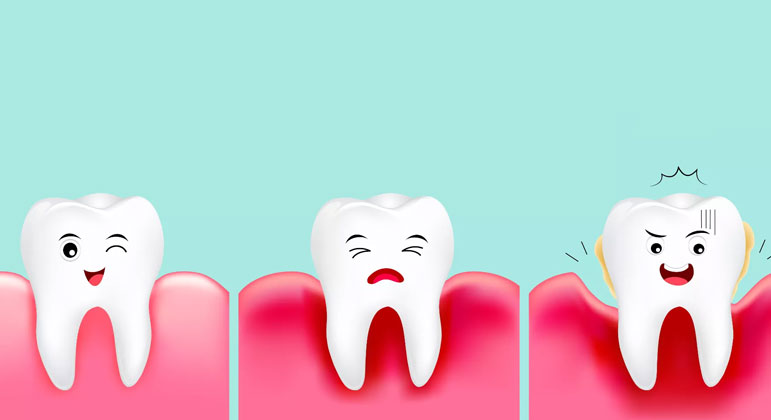
Wilma Ludlow
15:29 14 Feb 25
Best dentist I've ever been to. All the staff who work there are fantastic and very understanding - especially with my partner who is disabled
Kaye Didsbury
12:28 18 Dec 24
Had the best experience having my dental implants, this coming from the most nervous ever to even go for a check up. I cannot recommend Dr Joe Harvey enough, Put me at ease and explained everything honestly. The end result is amazing cannot stop smiling.The whole service from the Dental Centre is so friendly and helpful from all the staff.I would also like to thank my dentist James for encouraging for me to speak with Joe.THANK YOU TO YOU ALL
Emily Short
21:32 13 Nov 24
Most amazing experience at this dental practice, Dr Ben was so nice and listened to every detail I wanted no matter how small and was dedicated to giving me the perfect finish ever! I have never been more confident with my teeth. Abbie the dental nurse was also so lovely and made me feel so at ease the whole way through! Would 100% recommend anyone to go to this dentist and I will definitely be returning back x
H C
18:05 17 Jul 24
Pete and Hannah are absolutely brilliant. Their dental treatment is of the highest standard. It’s an absolute honour and privilege to have dental treatment by an amazing and professional team. I cannot recommend them highly enough. I feel totally relaxed by their excellent skill and care. Thank you both.
William Citrine
10:35 12 Jul 24
Could not be more happy with my implants. The care and attention to detail I received was first class. Would highly recommend Dr Joe to anybody. A big thank you to all the team.
Louise Moore
20:59 28 Feb 24
Came to this dentist last year as a new and very scared patient, Leigh was great put me at ease straight away! My fear has nearly gone i dint think i will ever like the dentist but really dont mind going now😁
Kay Young
19:43 06 Jul 23
I can’t thank staff enough for their help and assistance in arranging for my son to attend an urgent appointment due to the pain he was in. Denise and Helen kept in touch throughout, reassured me and offered lots of help and understanding during a very upsetting time for him. This is a great dentist with lovely staff. It came highly recommended and I am pleased we joined. Thank you all!
Jan Hunt
13:01 15 May 23
I had extensive dental work carried out and I am very pleased with the results. Sunita was very helpful and friendly throughout the process. Would highly recommend them.
Annie Spencer
16:13 14 May 23
So pleased with my implant from Dr Joe Harvey. I travelled from Wales to get this done and was able to do some of the initial appointments on video call and email which was really helpful. Joe explained thoroughly the procedure and stages and put me at ease. Really pleased with the results, I can smile confidently again ! Would definitely come here again if I needed another implant.
Sharon Townsend
14:35 04 Apr 23
I can't recommend Jo Harvey at Hunts Cross Dental Centre highly enough! I am delighted with the results of my implant. So quick, easy and competitively priced! I enquired about an implant prior to my wedding day. The process itself was very easy and Jo was very accommodating with his appointments. I would not hesitate to tell everyone thinking of having an implant to discuss it with Jo. He is a very personable, and enthusiastic dentist and I am sure you will not be disappointed.
lorraine meader
12:31 31 Mar 23
Spotless, staff are fab, sunitra was amazing would definitely recommend, very professional, always checking your ok and and giving her professional opinion, very happy
Anthony Standish
14:05 17 Mar 23
Amazed at the service that all the staff at this dentist provide.The Invisalign process I have just completed was fantastic.Thank you so much Ben, you are a true expert in your proffesion as a Top quality Dentist!The young lady on the desk Tracy a real asset to the company as she really is the boss but pretends not to be!Many thanks to everyone who works here as I am made up with my STRAIGHT TEETH!Tony and all the Standish family!!!
Margaret Concannon
17:25 24 Dec 22
For the second Christmas in a row was able to receive emergency treatment! I was actually able to receive short notice excellent emergency care from Dr. Leigh Woods concerning a painful front tooth nerve. I was impressed as she advised a fairly gentle procedure initially to avoid the possibility of a more radical treatment. This after an excellent replacement of a falling out front crown last Christmas Eve by Dr. Joe Harvey. Saving me from 'gummy' Christmas. Excellent practice would highly recommend.
Matthew
11:33 07 Nov 22
Excellent dentist. Friendly and helpful, very clear on pricing and options. James is an excellent dentist and Catherine does a brilliant job with scale and polish.
sandra barnes
14:33 20 Sep 22
Considering I am completely phobic when it comes to dentists I have never had such a good experience all the staff are lovely the practice itself is welcoming and joe is absolutely fabulous he put me at ease straight away and explained everything fully and was so patient with me being nervous I would recommend this practice to anyone excellent!!!!
Allan McGuire
11:18 03 Jun 22
Cannot fault the Dentists or the staff. All members of my family use the practice and are delighted!My recent series of appointments have been with Andrew Lindsey who specialises in the manufacture of dentures. The results are excellent and I highly recommend him !
Usij de zoysa
08:45 30 May 22
Excellent practice, the staff are all friendly and professional!I recently had a hay fever relief injection at HX and it’s had amazing results! I’ve had severe hay fever for over 20 years with antihistamines only giving mild relief. Within a few days after having the injection I could go out to the park on a hot sunny day and have no symptoms, truly life changing!
Angela Connelly
18:12 17 May 22
Very frightened of the dentist, but Joe put me at ease straight away. Had to get teeth out and dentures fitted and Joe put me in the capable hands of Andrew. Between them both they were very caring and understanding. I have the most beautiful set of teeth with Andrews recommendation’s.I would recommend to everyone.Thank you so much Joe, Andrew and team
Helen Lee
20:45 15 May 22
Totally recommend Dr Ben Harvey , he is very professional and highly skilled in dentistry and especially cosmetic dentistry. I’m over the moon with the outcome and appreciate Bens creativity and client care. He completely put me at ease and explained the entire process fully. The reception team are so friendly and welcoming also , can’t rate this practice high enough!
Colette Leatherbarrow
17:37 22 Apr 22
What a fantastic practice!! I'm very nervous of dentists but these fabulous people arranged a cancellation appointment me. Then a welcome appointment plus gave me the courage to have a tooth extracted....thank you to an amazing team!! Highly recommended
Debbie Mcnally
15:45 15 Feb 22
I am very nervous when it comes to the dentist but the staff made me feel comfortable and relaxed. My journey from start to finish was excellent 10/10 from me thanks Andrew
Neil Moody
16:56 23 Dec 21
Fantastic staff people and dentists, had a broken tooth and booked in and dealt with same day, how’s that for service !Going to hunts cross dental is a pleasure - only pain is it’s not free! But good Service never is?Thanks team HCD!
David Young
13:01 10 Nov 21
Very happy with every aspect of my recent treatment at HX dental recently, both with the care and thourorness from James at my check up. My mother and I also had dentures made by Andrew, really impressed with his knowledge and the care taken in explaining everything and making sure they fitted well and looked good. Great experience all round.
Emma Brown
14:37 23 Oct 21
This is the best dental practice I have ever been registered at! The team are so friendly, honest and professional. I had my chipped tooth which has been bothering me for years composite bonded by Sunita yesterday. Sunita put me at ease straight away and explained everything to me in detail to ensure that all options were explored before going ahead with my treatment. I am so happy with the result! It has given me my confidence back, and I no longer feel I only need to have my picture taken on 'my good side!' Thanks so much!
Hayley Maloney
12:36 12 Oct 21
Been coming to this dentist now for a few years. I have to say the service from the ladies at reception is just brilliant. They’re always so polite, listen and want to help. I had an emergency app today booked yesterday and I really appreciated what HXD dental did to fit me in and get it sorted within 24 hours . My dentist Ben is great. Very patient given how much of a nervous person I am to treat. I’d never go anywhere else now !
Helly Ho ho
07:14 28 Jul 21
Amazing service. Wobbly tooth causing pain. In within the hour. Tooth out pain gone. Thank you Helen for sorting this. Thank you Ben for the above and beyond care given. Waiting area and treatment room spotless.
Ian Gerrard
18:22 25 Jul 21
Been with this practice for over 30 years. What a fantastic surgery and the staff are always so friendly and professional. Dr James Garside is a brilliant dentist and always takes pride in his work. Would recommend this dentist surgery to anyone! Thank you for all you've done for me 👍
Nichola Wallace
15:02 16 Mar 21
The practise is such a lovely welcoming atmosphere. I have really enjoyed having my treatments done here. I would 100 pwrvent recommend. I also had my teeth bonded by Ben and there everything I asked for so happy with the out come.
Sharon Murphy
17:08 22 Feb 21
Myself and my family have been patients at this practice for over 35 years. We have seen lots of changes over the years but you can always guarantee first class treatment. I broke my tooth during the first lockdown and called to see if they were seeing emergency patients. The receptionist I spoke to was lovely and very knowledgeable with advice on products I could purchase until they were back open. Once they opened, I was called to make an appointment. I was quite anxious going while the virus was still so bad but everything was organised brilliantly. The practice is always spotless, the staff are really friendly and make you feel at ease. I really can’t recommend them enough!!
Lois Dugmore
15:42 22 Feb 21
Couldn’t recommend this dentist more! The dentists, dental nurses and receptionists are all so welcoming and friendly and put you right at ease if you’re nervous. Treatment is carried out to an extremely high standard and they really look after you.
Callum Sefton
20:04 09 Feb 21
I visited Hunts Cross Dental Centre in back in June when the dentists reopened for the first time since the first lockdown. I spoke to one of the dentists a few times over the phone whilst they were closed due to having toothache and they gave me lots of advice to get me by until they could open again which was really helpful. The staff were absolutley brilliant when i attended for my emergency appoitment with the given circumstances and got me out of pain staight away. Cant recommend these guys enough!!
Lucy Ward
19:08 08 Oct 20
I have been going to Hunts Cross for my dental treatment for the past 8 years and could not recommend highly enough. Such a friendly, caring and professional team, I always feel well looked after, always welcomed with a smile, and most importantly the treatment I have received has been second to none. Having attended numerous other dental surgeries in the past when living in different places I have felt taken advantage of at times in terms of receiving unnecessary treatments and so on, but never by the team at Hunts Cross, who I have found to be completely dedicated and trustworthy. Since having my baby girl in February we recently visited for her first check up and was reassured to note that everyone present in the surgery, including front of house, was adhering to the latest COVID regulations. The place is always sparkling clean with hygiene measures fully maintained by both dentists and nurses alike. A resounding seal of approval across the board for HX Dental from myself and my family!

Susan Mason
15:11 22 Feb 20
My dentist is Joe Harvey a really lovely friendly guy who is always professional and efficient but takes time to listen and answer any questions I might have. The reception staff are also very friendly and welcoming. Highly recommended!

Simon Davis
19:16 18 Feb 20
Excellent. I was registered quickly as a new private patient, booked in for an evening appointment (that in itself is great - so handy for after work visits) and seen by the dentist and his team. All staff were very polite, friendly and professional. The equipment appears to be recent tech (e.g. digital X-rays) and everywhere was very clean, tidy and bright. I couldn't ask for anything else. Recommended for sure!

J Donnelly
16:20 14 Jan 20
I would not hesitate to recommend this dental surgery to anybody considering using the practice. All the treatment I have received here has been of the highest standard in a super relaxed atmosphere and the service from the reception team is fab, they are always pleasant and helpful.I have a taken out a dental plan that the centre organised and I highly recommend doing this as it more than pays for itself with the treatment it includes.









